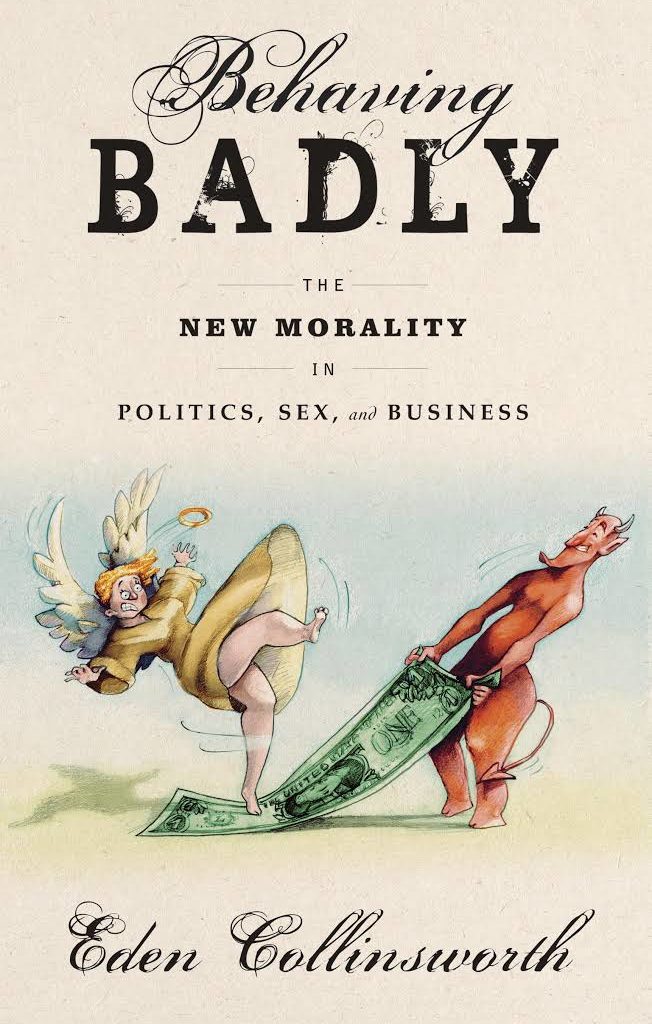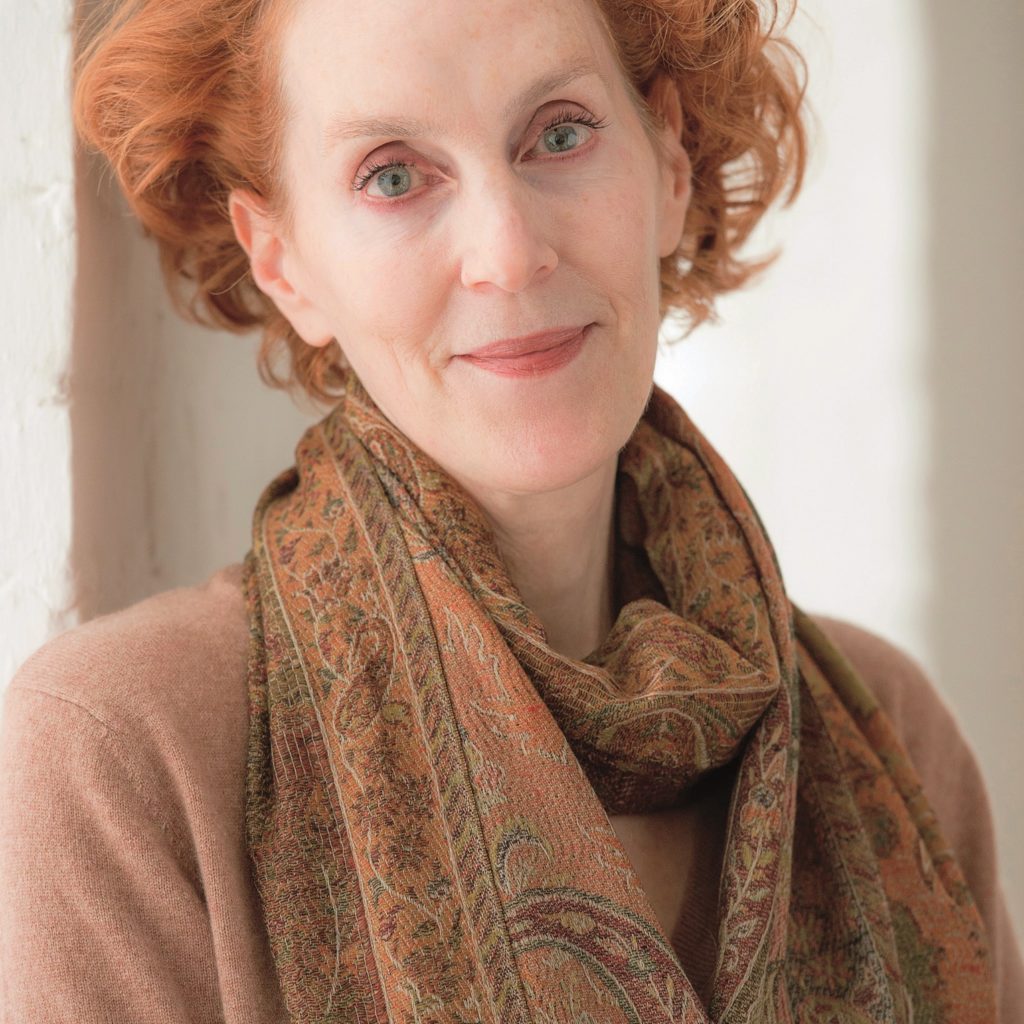Behaving Badly: In Conversation with Author Eden Collinsworth

Whether we travel to faraway lands or our own backyards, we are now certain to face moral dilemmas so fundamental, they inevitably shake up the world. In Eden Collinsworth’s new book, Behaving Badly: The New Morality in Politics, Sex, and Business, she investigates what makes it acceptable for the government to bail out big banks, how the infamous Ashley Madison website exposed the scope of marital affairs and got away with it, and how the idea of human rights co-exists with the body count of certain military decisions.
On her quest, the author of I Stand Corrected, who spent the last decade between the U.S. and China, enlists the authors of Sex and the City and The Handmaid’s Tale, as well as a convicted murderer and a holocaust survivor, to muse on the nature of right and wrong, ethics and morality, gratification and ramifications. In a lighthearted, inquisitive tone, Eden’s all-important report doesn’t pass judgment or preach — it simply captures exactly where we stand on morality today as a society, and how to keep our balance as the ground shakes.
We spoke to Eden Collinsworth about morality, culture shock, and her new book.

What was your main trigger to explore the question of morals?
I lived and worked in China for a period of time. Unlike the West, where Judeo-Christian ethics designate a non-negotiable right and wrong, the Chinese do not adhere to absolutes. This means that one in five of the world’s current population believes that there is no single way of being wrong, and many ways of being right.
Where does that leave the rest of us? I wondered.
We in the West would like to believe that individual freedom determines our choices, but in reality we are ruled by our culture and the prevailing time in which we live. Since he was old enough to understand my words, I tried to teach my son the difference between right and wrong, but the plain fact is that his take on morality wasn’t instilled by me as much as it was dictated by the profound changes during the course of his life: changes brought about by advancements in technology and science I don’t fully understand, and that my parents could not have imagined. I thought that, if I spent a year trying to discover where and how morality is changing, I might be able to chart where it’s going.
So, what’s your personal strategy and criteria for deducing the moral weight of different decisions?
No single generation can claim a peerless contribution to ethical behavior, but in my parents’ time, morality was a rulebook: some parts enshrined as decent behavior; others, implicit. Sins were laid bare and bad behavior had far-reaching and lasting consequences.
That is no longer the case. What were clearly designated ethics have been blurred. More recent generations are likely to have a 360-degree moral view, sourced by anyone in the public eye: politicians, people with big followings on social media, YouTube stars, sports stars, and celebrities.
In terms of my own outlook, I believe in the lasting power that comes from habit. If we develop and adhere to habits of respect, for example, we become more respectful, and if we become more respectful, we become better people through application. This is the modus vivendi that sustains my thinking.
Behaving Badly: In Conversation with Author Eden Collinsworth.
In the book, we learn a key difference between the sexes: women ask more questions than men. Do you think being a woman influenced the shape your book took? How do you think a man would approach a book about morals?
I would suggest that women in general are not charmed by the history of their subjugation, particularly because evidence indicates that men have not been spectacularly successful in making and managing civilization. After a careful and close review of the facts, we might even arrive at the conclusion that men are often responsible for making obstacles to progress. Because important contributions to the advancement of humankind are ideas, talent, and skill, and there are no advantages in marginalizing one-half of the world’s population, what is the purpose of casting women as inferior to men?
I enjoy men for the wonderful ways they are different from women. I feel I must add, however, that my career has unfolded predominantly among men, and so I’ve witnessed enough decision making among them to believe that various ill-advised mergers and acquisitions (and, certainly, a large number of hostile takeovers) might not have occurred had it been women weighing the benefits against the risks.
This does not mean that women are more moral than men. But, in general they do problem-solve in a different way. More to the point, few can argue the financial benefit to companies who look at a wider range of board candidates to lead them. And yet, the share of women on U.S. boards has stagnated at one in five since 2012. This, I hope, will change.

Why did you focus on these three topics: Politics, Sex, and Business?
The consideration of morality cannot survive without a great deal of humility and some degree of humor. My intention in writing the book was to bring both to bear, for I am not an ethicist or a social scientist and the book is not an academic debate on the topic of morality, but an adventurous search for its modern-day relevance.
The three themes—sex, politics, and business—seemed to me the most relevant approach to the subject. That said, no reader is obliged to turn the page and so, more importantly, I wanted to tell a story.
Pink Pangea readers are avid travelers and I’m sure all of us have experienced culture shock at one point or another. What are the best and easiest practical ways to deduce the moral paradigm of a place to avoid it?
We want to believe that there are moral absolutes, but the fact is that morality does not consist of universally agreed-upon ideals. Nor, it happens, do ethics, which are dictated and adjusted by a given society at a particular period of time.
I have lived in many countries not my own (France, Belgium, China, England and L.A, which is often thought as a foreign place, even by its countrymen). An important nuance of the meaning of ethics resides in “a given society at a particular period of time.” That qualifier—as subtle as it is—moves ethics from any fixed point.
As an immigrant, I found that moving into a new country challenged my beliefs and assumptions at first, but later helped me develop a stronger moral paradigm.
Behaving Badly: In Conversation with Author Eden Collinsworth.
In your experience, does living in places with different ethical and moral laws make you more confident in your own set of rules or more confused?
Never has our world been so interconnected. In order to function—and, ideally, thrive—both as individuals and as a society, we’ll need to take our eyes off the mirror in front of us and look squarely at people with different truths and values, because only then will we be able to make the difficult decisions of when to be tolerant.
At times, those decisions will require us to relinquish some part of our moral ground, and at other times they will call on us to protect the moral ground we are determined to hold. Out of such decisions will arise moral systems that will enable us to navigate the future.








